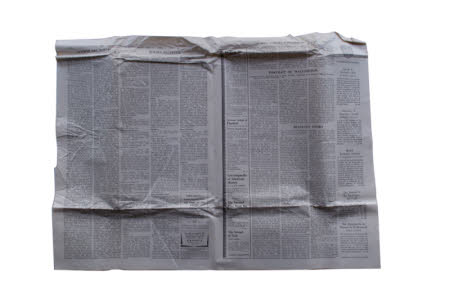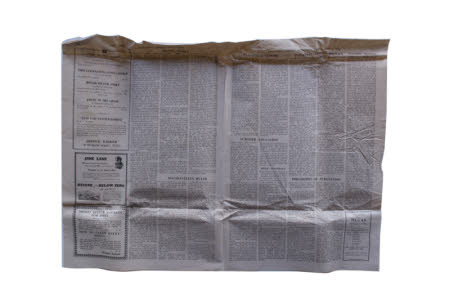THE TIMES LITERARY SUPPLEMENT
The Times
Category
Ephemera
Date
9 Apr 1954
Materials
Newspaper
Order this imageCollection
Mr Straw's House, Nottinghamshire
NT 3168029.3
Summary
The second of two sheets from 'THE TIMES LITERARY SUPPLEMENT' dated 'FRIDAY APRIL 9 1954' pages '238' and '227' with articles on; 'Madame de Pompadour.... Selected Letters of Flaubert...... PORTRAIT OF WELLINGTON...... SEAMAN'S STORY....' amongst others. The paper wraps the book 'A pleasante & merrye humor off a roge' by William Cavendish, 1st Duke of Newcastle-upon-Tyne, KG, MP (1593-1676) (record 3168029). William Cavendish, 1st Duke of Newcastle upon Tyne KG KB PC (6 December 1592 – 25 December 1676) was an English polymath and aristocrat, having been a poet, equestrian, playwright, swordsman, politician, architect, diplomat and soldier. Born into the very wealthy Cavendish family at Handsworth in the West Riding of Yorkshire, William's family had a good relationship with the ruling Stuart monarchy and began to gain prominence after he was invested as a Knight of the Bath and soon inherited his father's Northern England estates. At first a courtier of James I of England, he would later strike up friendships with Charles I of England and his wife Henrietta Maria for whom he hosted lavish banquets. He was created Marquess of Newcastle-upon-Tyne and entrusted with the education of the royal couple's son, the future Charles II of England. Cavendish was a staunch royalist helping to fund the king in his Bishops' Wars and then during the English Civil War he was made a general for the fight in the North of England against the roundheads. In 1645 he married the English poet, dramatist, philosopher, and natural scientist Margaret Lucas. After the defeat at Marston Moor, Cavendish went into self-imposed exile, only returning with the English Restoration where he was created a duke.
Makers and roles
The Times, engraver and publisher

